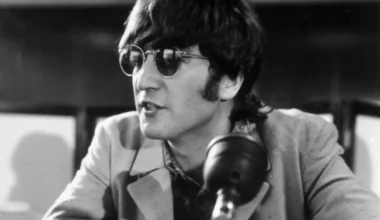Of all the greatest names in rock history, Lemmy lived and breathed the genre from the moment he took the stage. Whether working with Hawkwind or Motörhead, Lemmy was unknowingly pioneering the sound of heavy metal and hard rock. He stands at attention with his microphone raised and wailing in his distinct gravelly tone. Many have praised albums like Ace of Spades for helping to break down rock’s barriers. But the frontman admitted that most of the material on it was never as good as it seemed.
Looking at Motörhead’s trajectory, it was clear that the band was still shaking off the remnants of Hawkwind. Formed as a psychedelic outfit in the late 1960s, Lemmy quickly became the lead songwriter of Hawkwind. He helped them score some of their first major hits on tracks like ‘Silver Machine’.
When the bass player was arrested for drugs midway through the tour, the band decided to fire him in favor of someone more dependable. Taking the name of his new band from the last song he wrote for Hawkwind, Lemmy reintroduced himself to the world with Motörhead on the album On Parole. It bridged the gap between his psychedelia years and the caustic rock and roll he would become known for.
Lemmy created all of Motörhead’s music. But the band wasn’t truly solidified until he added Phil Taylor on drums and ‘Fast‘ Eddie Clarke on lead guitar. Looking to emulate the model set by groups such as The MC5, Lemmy would steer the band into the late 1970s in style with albums such as Overkill. It opened up people’s minds to what could be done with double bass drums.
As the 1980s began, Ace of Spades became the group’s trademark. It was with the title track telling the story of living freely and keeping action at the forefront of one’s life. Lemmy had a special fondness for the music that made him famous. But he was unwilling to return to the documented versions of their old songs.
Lemmy believed that many of Motörhead’s classic albums did not stand up in retrospect. He told Louder Than War, “They are not even good; primitive, bad sound, bad equipment, and in a lot of cases played badly. There was something good about it when you were 16, but the moment has passed.”
Even if Lemmy didn’t like his previous work, it was all about the band moving forward with each new record. By the time the 2000s arrived, Lemmy remained determined to create the best Motörhead record. It was eventually heading into punk with the album We Are Motörhead and reconnecting with the bluesier side of his sound with age.
‘Ace of Spades’ would remain a staple of the band’s setlist until Lemmy’s death. He never complained about the quality of his work. The recording may have been primitive. During those final runs of shows, ‘Ace of Spades’ had grown from the naive cry to a seasoned anthem.








